DDUGU registrar Ajay Singh denied claims about a fee hike and directed ThePrint to the fee structure listed on the university website.
However, fee receipts issued to PhD scholars — in possession of ThePrint — show that they paid Rs 6,388 as fee for six months, which was higher than the Rs 4,890 mentioned on the website.
Responding to queries from ThePrint, a university official said on condition of anonymity, “The increase in fee for undergraduate, postgraduate, PhD and self-financed programmes in DDU Gorakhpur University in the academic session 2023-24 is still less than the fees currently applicable in other state-run universities in Uttar Pradesh.”
Claiming that the fee hike was affected only for self-financed courses, the official said in a statement, “The university is currently running 97 (self-financed) degree, diploma and certificate courses with a total student strength of 1,585. Out of 1,585 only 400 students are affected by the fee hike. Of the 97 courses, fee has been increased in only 16 while it has been reduced in 7 courses. And there has been no change in fees in 74 courses.”
For most self-financed courses at the university, one doesn’t need to sit for an entrance test and admission is subject to availability of seats. Since these courses do not receive any government funding, their fee is also higher than that of the regular ones.
A faculty member, however, told ThePrint, “The main grouse is that even students enrolled before 2023-24 are being asked to pay the pending fee according to the new structure. This caused the most resentment, resulting in protests and even violence against the V-C when their (students’) voices went unheard.”
Also read: Baudhayana theorem to Aryabhata’s trigonometry — NCF’s maths syllabus highlights Indian contribution
‘Fee for PhD programmes hiked by 300-400%’
A comparison between the two brochures issued by the DDUGU in March and July for the academic session 2023-24 shows that the fee of as many as 25 courses, including BSc (Agriculture), MBA, BBA, BJMC and BA LLB, has been increased.
Interestingly, the fee structure available on the university’s website is much lower than the one mentioned in the brochures in possession of ThePrint.
MBA is one of the courses that saw a fee hike of 112 percent over the past three years, alleged Mayank Rai, ABVP’s Gorakh Prant joint secretary, who was among the eight students arrested in connection with the 21 July incident.
“While the fee in 2021 was Rs 47,100, it was hiked to Rs 68,000 in 2022 and to Rs 1 lakh in 2023. The fee for PhD (practical) and PhD (non-practical) programmes has been increased by 312.79 percent and 419 percent respectively,” he alleged.
According to the new brochure, the fee for DDUGU’s MBA programme is indeed Rs 1 lakh (Rs 50,000 per semester), excluding the additional university fee.
Speaking to ThePrint, a PhD scholar pointed out that earlier, the fees for the PhD (practical) course was Rs 3,096 per year and now, it has been increased to Rs 12,768.
“For the PhD (non-practical) courses, the yearly fee used to be Rs 2,076 and now, it has increased to Rs 10,776. Further, students used to pay Rs 3,200 for their final thesis submission but now, this amount too has been increased to Rs 10,500,” he said.
‘Pay fee retrospectively’
Students further alleged that even those who enrolled in PhD courses before the beginning of the academic session 2023-24 and are yet to pay their pending fees, have been asked to pay the fee retrospectively, according to the new fee structure.
“The new fee structure was introduced this July. Many students have not yet submitted their fees for previous semesters. They have been asked to pay according to the new fee structure. This led to protests last month and the students gheraoed the V-C,” said the PhD scholar quoted earlier.
In addition, students say there are several other heads under which they need to pay.
“We have to pay a registration fee of around Rs 1,400 every semester. Further, we have to pay Rs 150 as exam fee per semester. Small increments are adding to the overall expense. Those who are from middle class families can afford this amount but this university is the go-to institution for children of the poor too. Not everyone can afford this,” said Nayantara (name changed), a BSc second-year student.
ABVP’s Mayank Rai said when the university first introduced the registration fee in August 2021, students led by ABVP members protested the move, terming it an “unrecorded fee”.
“We gave several memorandums and were assured by the V-C but they started charging it from the next semester…the hike has been unprecedented,” he rued, wondering how students from economically weaker sections will be able to pay the registration fee.
On the claims that students were being charged retrospectively, registrar Singh said every year, students have to take fresh admission and the fee is charged accordingly. Citing lack of funds, he told ThePrint, “We have 450 teachers and 1,000 employees to pay. If the government gives funds, we won’t need to increase the fee. Of the total yearly expense of Rs 120 crore for staff salaries, we get only Rs 8.61 crore from the state government.”
Also Read: Visa woes, ‘low stipend’, protest backlash — why SAARC university is a far cry from Manmohan’s vision
Erroneous & delayed results
Another issue that has led to protests on campus is erroneous or delayed results.
Manish Kumar (name changed) is from a village in Kushinagar and was pursuing his BCom from Rajkiya Mahavidyalaya, Dhadha Buzurg, an affiliated college, till 2021.
When the results for his first semester were released, albeit after a yearlong delay, he was marked ‘fail’ on the grounds that he failed to appear for three exams.
“I was shocked to see this result since I had appeared in all the exams. We asked college officials but to no avail,” he alleged. Manish said he lost two years of his life. “This year, I had to take fresh admission in another affiliated institution, Kabutari Devi College.”
This did not seem to be an isolated case. According to media reports, when the results were released in 2022, over 2,000 students had similar complaints. This was confirmed by a DDUGU faculty member, who said many students had complained of erroneous results.
“Hundreds of students were shown to be absent in some of the exams and they ran from office to office to prove that they were indeed present on said dates. While some opted out of the university, others had to fight it out to prove their result was erroneous. It was disheartening to see the students’ plight,” said the faculty member quoted above.
Students say delay in results is now a regular affair and thousands are still waiting for their first semester result. “I have entered the fifth semester this year but my third semester result is yet to be out. This creates confusion and fear in students’ minds,” said Nayantara.
On the issue of erroneous or delayed results, the registrar said the agency preparing results was overburdened due to several examinations being conducted in different systems.
“First, we had a semester system. Then we introduced the Choice Based Credit System (CBCS) in 2021 and soon after, the National Education Policy was implemented the same year. Some students are studying according to the old system while others are enrolled in the semester or the CBCS system. So, naturally, it will take some time,” Singh said.
Issues with campus infra
When ThePrint visited the DDUGU campus on 12 August, 2023, most washrooms across different departments were found to be unclean, while in the Arts faculty, the washroom for women and the specially abled did not even have a door.
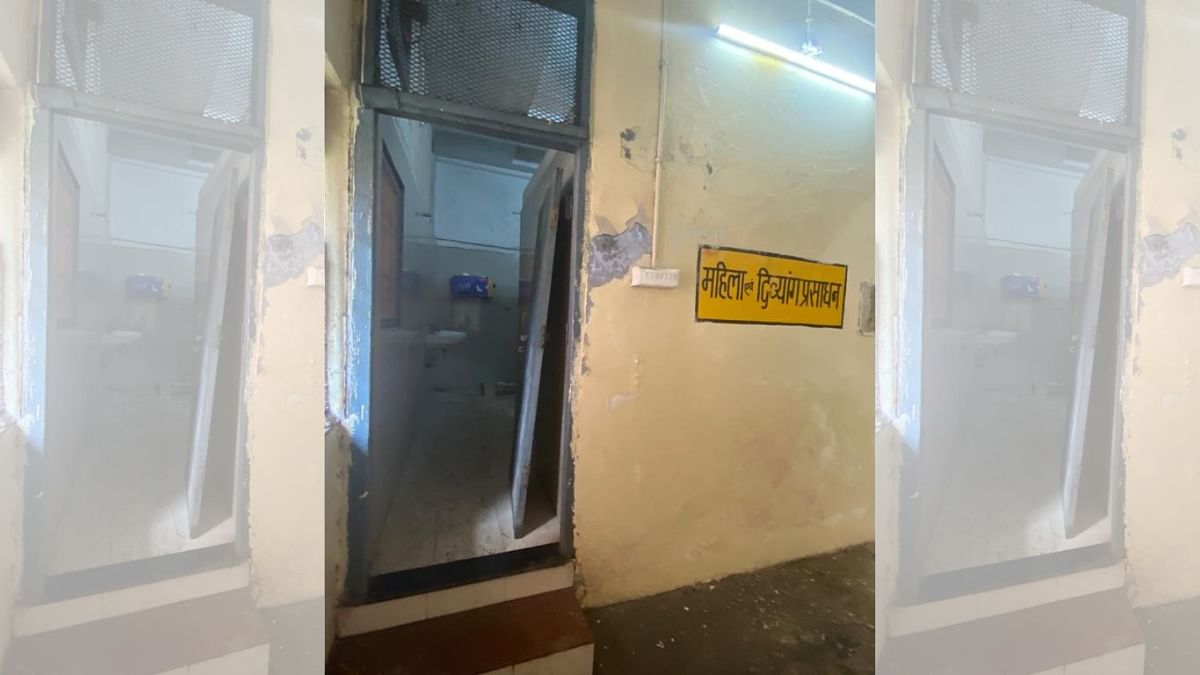
“Most of them (washrooms) remain dirty and the sanitary napkin machines installed in them don’t work,” said Ananya Tiwari, a student of BA LLB, adding that girl students don’t have access to the girls’ common rooms in most departments.
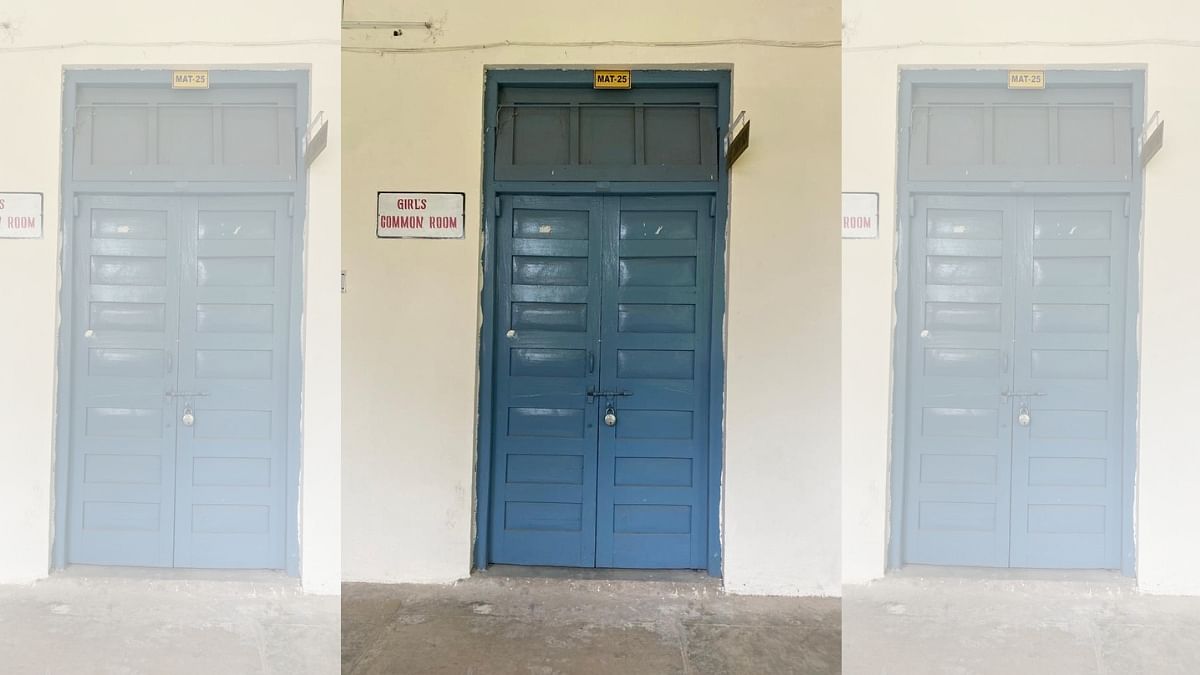
At the same time, Nayantara said that of the five departments in the Science faculty — physics, chemistry, electronics, maths and defence — clean drinking water is available only in the defence department. Similarly, for over ten departments in the Arts faculty, a water cooler for clean drinking water is available only in the history department.
“There is one water cooler in the psychology department too but they don’t allow students from other departments to drink water from that,” alleged Nayantara.
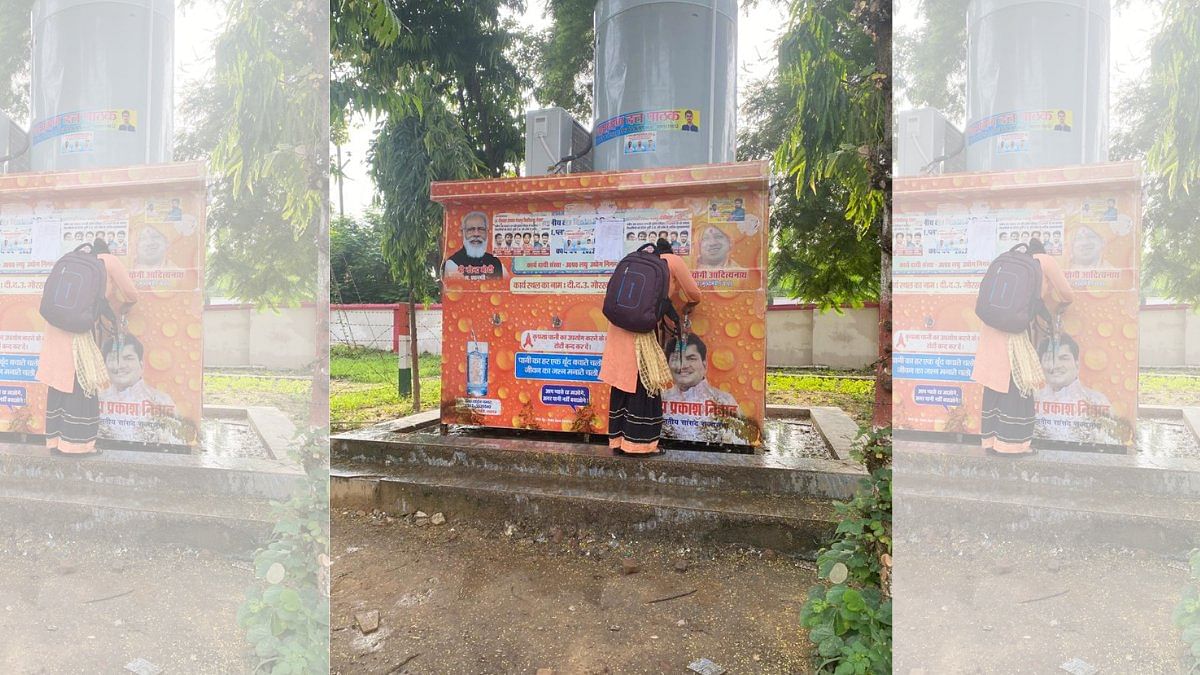
Hostellers and members of the ABVP protested outside the V-C’s residence demanding clean drinking water in June this year but they alleged that rather than a resolution, they were served notices by the administration warning them of action for protesting.
Media reports also show that students staged protests outside the V-C’s residence on more than one occasion over dysfunctional RO plant in the boys’ hostels. And in April, water tankers had to be brought on campus when the RO plant stopped functioning.
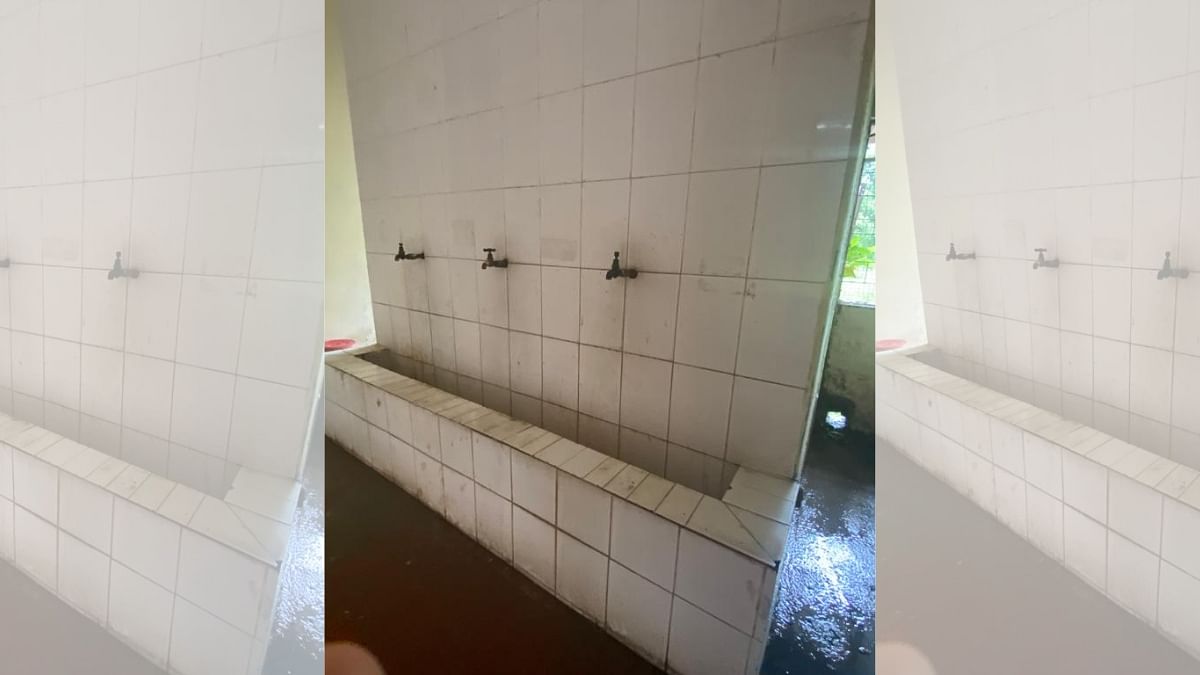
On the issue of unclean washrooms and inadequate provision of clean drinking water, Singh said tankers had to be brought in as the RO plant was not working due to a temporary fault. “It is possible that some machines don’t work at odd times. Departmental heads should check why washrooms remain dirty despite sanitation staff being in attendance.”
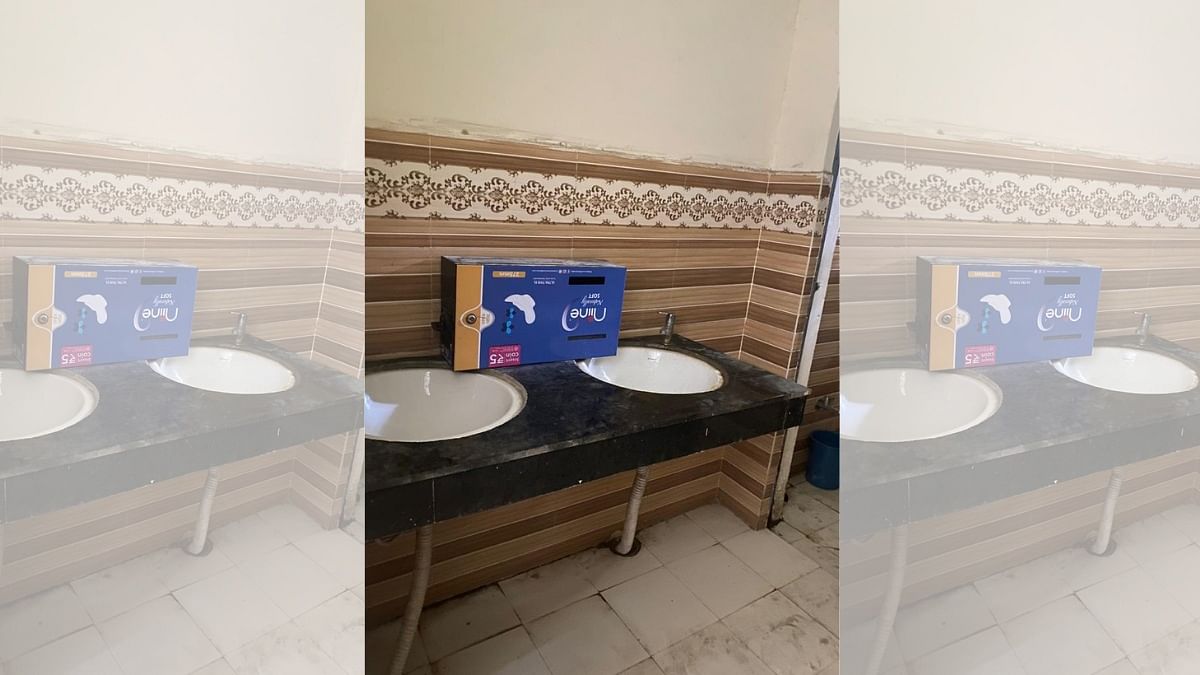
In addition the various concerns, residents of the four boys’ hostels alleged that the mess doesn’t function despite them having paid Rs 18,000 as half-yearly mess fees. “The food served is bad, there is no adherence to the menu and they use soda to knead the dough so that less food fills up stomachs. But it is unhealthy,” alleged Yogesh Singh, state vice president, NSUI (National Students’ Union of India — youth wing of the Congress).
ABVP’s Rai claimed the “oldest, biggest hostel with 153 rooms has been occupied by a PAC unit since 2021”. PAC or Pradeshik Armed Constabulary is an armed unit of the UP Police.
“Students were asked to vacate the hostel on the pretext that it needed renovation which would complete in three to four months. However, the PAC occupied the hostel soon and continues to do so. Students gave memorandums against it several times but all we got were assurances from the university that PAC will vacate soon. The personnel indulge in misbehaviour, drink alcohol while students are forced to stay as paying guests,” he alleged.
To that, registrar Singh said that the hostel was damaged and was shut at the direction of the governor, who is also the chancellor of the university, adding that the PAC unit is present for security purposes since Gorakhpur (Urban) is the chief minister’s constituency.
Another grouse voiced by students was non-availability of new reading material in the university library.
“Students pay the library fees and get a receipt but we haven’t got a library card. I have to use my university ID to enter the library. In 2002, many important amendments were made in laws but there is not a single book in the library covering those,” said Ananya.
The registrar countered this with the argument that books are purchased only on the recommendations of the head of department. Asked when was the last time new books were purchased for the library, Singh answered by saying last year.
Also important to note is that in March this year, within months of the NAAC rating, the false ceiling of the central library came crashing down, causing a scare among students.
Shivam Pandey, joint secretary of ABVP’s DDUGU unit, alleged that the ”false ceiling was installed to show to the NAAC team that all is well” but within one-and-a-half month of the team leaving, the ceiling came down, adding that ”luckily, students escaped unhurt.”
Registrar Singh said the ceiling was still in the ‘guarantee period’ and will be repaired. “It is possible that some loose screws or nuts came off after some problem but there is no major issue. If a building or bridge is constructed and falls, what can one do about it?” he asked.
(Edited by Smriti Sinha)
Also read: More ‘choice’, but also more exams — what National Curriculum Framework has in store for grades 9-12
